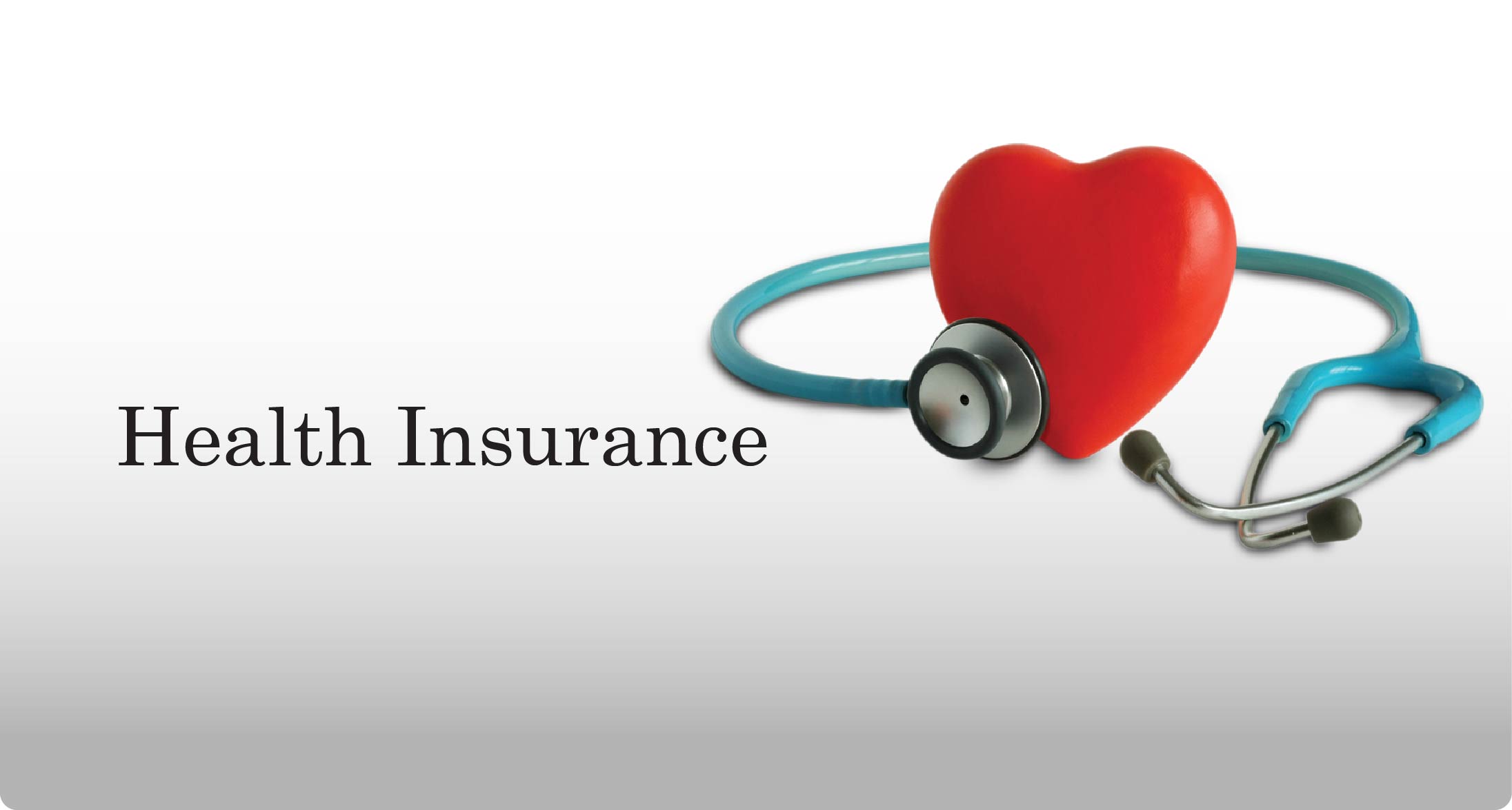Demystifying Health Insurance Options in Philadelphia
In this comprehensive guide, we will walk you through the essential steps to choose the best health insurance in Philadelphia.

Choosing the right health insurance plan can be a daunting task, but it's a crucial decision that can significantly impact your financial well-being and access to quality healthcare services. Philadelphia, a vibrant and diverse city, offers a multitude of health insurance options. In this comprehensive guide, we will walk you through the essential steps to choose the best health insurance in Philadelphia. We will cover topics such as comparing health plan networks, understanding the average cost of health insurance, the impact of plan tiers and family size on costs, and how to find the best health insurance providers in the city.
Step-by-Step Guide for Best Insurance
Assess Your Needs: Before diving into the world of health insurance plans, assess your specific needs. Consider factors such as your health status, age, and the medical needs of your family members. Determine whether you need coverage for regular check-ups, prescriptions, or more specialized services.
Understand Health Plan Networks: Health insurance plans often come with a network of doctors, hospitals, and healthcare providers. Ensure that your preferred healthcare providers are in-network to maximize your coverage and minimize out-of-pocket expenses.
Average Cost of Health Insurance: The cost of health insurance in Philadelphia can vary widely based on factors like age, location, and the level of coverage you choose. Research and compare different plans to find one that aligns with your budget. Keep in mind that premiums, deductibles, and co-pays all contribute to your overall costs.
How the Plan Tier Affects Costs: Health insurance plans are typically categorized into tiers, such as Bronze, Silver, Gold, and Platinum. These tiers represent different levels of coverage, with Platinum offering the most comprehensive coverage and Bronze being more cost-effective. Assess your healthcare needs and financial situation to determine which tier suits you best.
How Family Size Affects Costs: The size of your family can impact your health insurance costs. Some plans offer family coverage, which can be more economical than insuring each family member individually. Consider the age and health status of your family members when choosing the right plan.
Choosing the Best Health Insurance
Short-Term Health Insurance: Short-term health insurance plans are designed to provide temporary coverage during transitional periods, such as between jobs or while waiting for other coverage to start. While they offer basic protection, they may not cover pre-existing conditions or provide long-term benefits.
Medicaid Health Insurance Coverage: Medicaid is a government-funded program that provides free or low-cost health insurance to eligible individuals and families with limited income. Check if you qualify for Medicaid in Philadelphia, as it can be a cost-effective option for those in need.
Child Health Coverage: Ensuring your children have access to quality healthcare is paramount. Consider child-specific health insurance plans or family plans that cover pediatric care, vaccinations, and routine check-ups.
Individual and Family Health Insurance Companies in Philadelphia: Philadelphia boasts several reputable health insurance providers. Research and compare insurance companies like Independence Blue Cross, Aetna, Cigna, and UnitedHealthcare to find the one that best meets your needs.
How to Save Money on Health Insurance:
Utilize Health Savings Accounts (HSAs) or Flexible Spending Accounts (FSAs) to save on eligible medical expenses.
Opt for a higher deductible plan if you are in good health and can afford potential out-of-pocket costs.
Explore government subsidies or tax credits if you qualify.
Consider bundling insurance policies (e.g., health and dental) for potential discounts.
What Is the Best Health Insurance Plan: The "best" health insurance plan is subjective and depends on your unique circumstances. The ideal plan provides adequate coverage for your needs, includes your preferred providers, and fits your budget. Conduct thorough research, read customer reviews, and consult with insurance agents to make an informed decision.
How Health Insurance Covers Expenses
Health Insurance Plans for Every Stage of Life: Life stages have unique healthcare requirements. Look for plans that align with your current life stage, whether you are a student, a young professional, a family, or a senior citizen. Some plans may offer specialized coverage for specific age groups.
Dental and Vision Insurance: Dental and vision care are often not included in standard health insurance plans. Consider adding separate dental and vision insurance or finding a comprehensive plan that includes these benefits.
Short-Term Health Insurance: Short-term health insurance plans can be a cost-effective solution for temporary gaps in coverage. Be aware of their limitations and ensure they meet your immediate needs.
Medicare: If you are 65 or older, you may be eligible for Medicare, a federal health insurance program. Medicare comes in different parts, including Part A (hospital insurance), Part B (medical insurance), and Part D (prescription drug coverage). Research which parts you need to enroll in and understand their costs and coverage.
Should You Include Parents in Group Medical Insurance
Including Parents in Group Medical Insurance: Including parents in your group medical insurance can be a compassionate and cost-effective option. Many employers offer family plans that allow you to cover dependents, including your parents. This can provide them with access to healthcare services while potentially reducing overall costs.
Health Insurance Statistics in Philadelphia
Understanding the landscape of health insurance in Philadelphia requires delving into some essential statistics. These statistics can provide valuable insights into the state of healthcare coverage in the city and help you make informed decisions.
Coverage Rates: According to the U.S. Census Bureau, as of 2020, approximately 6.4% of Philadelphia's population was uninsured. While this is lower than the national average, it still represents a significant number of individuals without coverage.
Employer-Sponsored Insurance: Many residents in Philadelphia obtain health insurance through their employers. In 2020, around 41.4% of Philadelphians had employer-sponsored insurance, which often includes group health plans.
Medicaid: Medicaid plays a crucial role in providing coverage to low-income individuals and families in Philadelphia. In 2020, roughly 26.8% of the city's population relied on Medicaid for their healthcare needs.
Medicare: Philadelphia has a substantial population of seniors. Medicare, the federal health insurance program for individuals aged 65 and older, covered around 18.1% of the city's residents in 2020.
Marketplace Plans: The Health Insurance Marketplace, established under the Affordable Care Act (ACA), offers private insurance plans to individuals and families. In Philadelphia, about 5.5% of the population purchased coverage through the Marketplace in 2020.
Children's Coverage: The Children's Health Insurance Program (CHIP) provides coverage to children from low-income families. In 2020, CHIP covered approximately 3.8% of Philadelphia's children.
Uninsured Rates by Age: Uninsured rates vary by age group. Young adults (18-34 years old) are more likely to be uninsured, with a rate of 10.2% in 2020, compared to 3.5% for those aged 35-64.
Healthcare Costs: In Philadelphia, the average annual premium for employer-sponsored health insurance in 2020 was around $6,929 for single coverage and $19,542 for family coverage. Understanding these costs can help you budget for your health insurance needs.
Health Insurance Plans for Every Stage of Life
It's essential to recognize that your healthcare needs change as you progress through different stages of life. Here's how to tailor your health insurance choices to match your life stage:
Young Adults and Students: If you're a young adult or a student in Philadelphia, you may be relatively healthy but still need coverage for unexpected events. Consider lower-cost plans like Bronze or Catastrophic plans, which offer essential coverage without high premiums.
Starting a Family: When you're planning to start a family, comprehensive coverage is crucial. Look for plans that include maternity and pediatric care. Evaluate the network of doctors and hospitals for family-friendly options.
Mid-Career Professionals: As you progress in your career, your income may increase. This might be a good time to consider higher-tier plans like Silver or Gold, which offer a balance between coverage and costs. Check if your employer offers health savings accounts (HSAs) to save on healthcare expenses.
Seniors: If you're approaching retirement or already eligible for Medicare, it's essential to understand the different parts of Medicare and supplemental plans available. Medicare Advantage plans can provide comprehensive coverage, including prescription drugs.
Dental and Vision Insurance
Dental and vision care are often overlooked aspects of healthcare, but they play a significant role in your overall well-being. Here's what you should know about dental and vision insurance:
Dental Insurance: Dental insurance plans typically cover routine check-ups, cleanings, X-rays, and basic procedures like fillings and extractions. Some plans may also cover orthodontic care. Dental insurance can help you maintain good oral health and save on dental expenses.
Vision Insurance: Vision insurance covers eye exams, prescription glasses, contact lenses, and even corrective surgeries like LASIK. Regular eye exams are essential for detecting vision problems and maintaining eye health.
Bundling Plans: Some insurers offer bundled packages that include dental and vision coverage along with traditional health insurance. Bundling can be a cost-effective way to ensure you have comprehensive healthcare coverage.
Short-Term Health Insurance
Short-term health insurance plans are designed to provide temporary coverage for specific needs. Here are some situations where short-term plans can be beneficial:
Transition Periods: If you're between jobs and waiting for your new employer's insurance to start, a short-term plan can provide coverage during this gap.
Early Retirement: If you retire before you're eligible for Medicare, a short-term plan can bridge the coverage gap until you reach Medicare age.
Temporary Residents: If you're a temporary resident in Philadelphia, such as a student or a seasonal worker, short-term plans can offer affordable coverage for your stay.
Emergency Situations: In unforeseen emergencies where you need immediate coverage, short-term plans can provide protection.
Medicare
For seniors aged 65 and older, Medicare is a crucial part of healthcare planning. Understanding the different parts of Medicare can help you make informed choices:
Medicare Part A: Part A covers hospital stays, skilled nursing facility care, hospice care, and some home health services. Most people do not pay a premium for Part A if they or their spouse paid Medicare taxes while working.
Medicare Part B: Part B covers medical services, including doctor's visits, outpatient care, preventive services, and durable medical equipment. It comes with a monthly premium.
Medicare Part C (Medicare Advantage): Part C plans are offered by private insurance companies and provide all the benefits of Part A and Part B, often with additional coverage like prescription drugs and dental care. These plans may have their own premiums.
Medicare Part D: Part D is prescription drug coverage. It helps cover the cost of prescription medications and comes with its own premium.
Including Parents in Group Medical Insurance
Many individuals in Philadelphia face the responsibility of caring for their aging parents. Including your parents in your group medical insurance can be a compassionate and practical choice. Here are some considerations:
Employer-Sponsored Family Plans: Check with your employer to see if they offer family plans that allow you to include your parents as dependents. This can provide your parents with access to healthcare services and potentially save them money on premiums.
Eligibility: Ensure that your parents meet the eligibility criteria set by your employer's insurance plan. Some plans may have specific requirements regarding the age and dependency of parents.
Cost Analysis: Consider the financial implications of adding your parents to your insurance. Evaluate whether the additional premium costs are manageable for your budget.
Coverage Needs: Assess your parents' healthcare needs and whether the coverage provided by your plan meets those needs. Different plans may offer varying levels of coverage and access to healthcare providers.
Alternative Options: If including your parents in your group insurance is not feasible, explore alternative options such as Medicaid or Medicare, which may be more suitable for their specific circumstances.
Choosing the right health insurance plan in Philadelphia is a crucial step in safeguarding your health and financial well-being. By following this step-by-step guide, understanding key factors like health plan networks, costs, and family considerations, and exploring the various insurance options available, you can make an informed decision that aligns with your unique needs and circumstances. Remember that health insurance is an investment in your future health and peace of mind, so take the time to research and choose wisely.





















